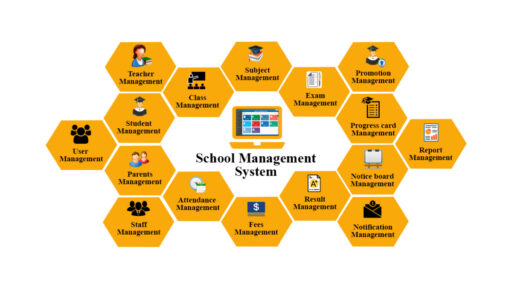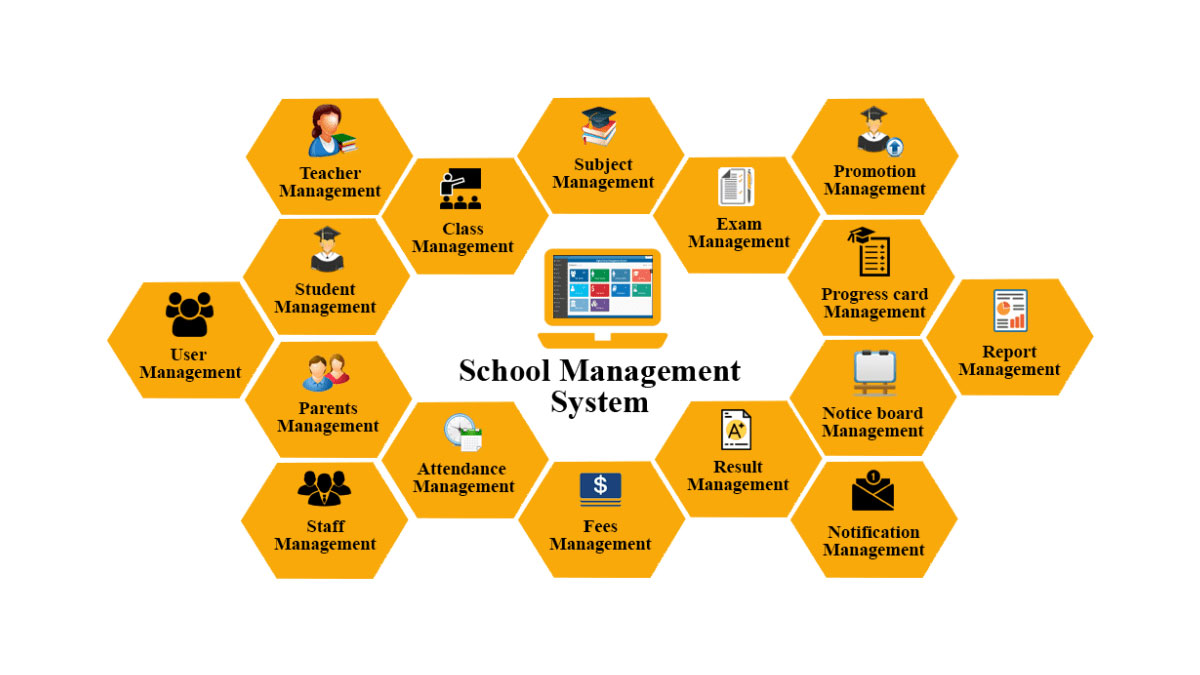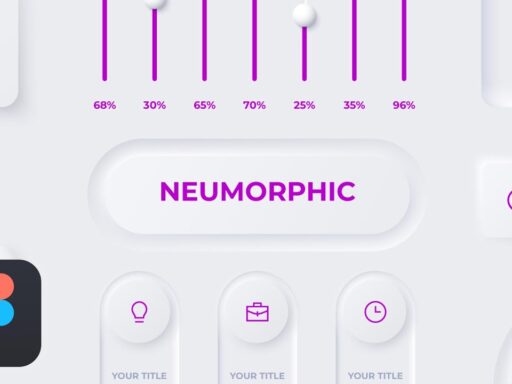Introduction:
In the dynamic realm of education, the integration of technology is indispensable for effective school administration. This comprehensive blog aims to demystify the complexities of School Management System ERP Development, providing a thorough guide for educational institutions and technology enthusiasts keen on optimizing the efficiency and effectiveness of school operations.
Understanding School Management System ERP: School Management System ERP, or Enterprise Resource Planning, is a holistic software solution crafted to unify and streamline various administrative and academic functions within educational institutions. This segment offers a detailed exploration of the functionalities that a robust ERP system encompasses.
Key Modules of School Management System ERP: Uncover the essential modules constituting a sturdy School Management System ERP, such as Student Information System (SIS), Attendance Management, Gradebook, Timetable Management, Finance and Accounting, Human Resources, and Communication. Grasping the role of each module is crucial for crafting a tailored solution.
Technology Stack for Development: Delve into the imperative technologies and programming languages essential for crafting a School Management System ERP. This section provides insights into frontend and backend technologies, databases, and frameworks contributing to the seamless functioning of the ERP system.
User Authentication and Access Control: Security takes precedence in educational systems. Learn about implementing robust user authentication mechanisms and access control features to safeguard sensitive data. This includes role-based access control and encryption techniques.
Scalability and Customization: Educational institutions exhibit diversity in size and requirements. Discover strategies for developing a scalable School Management System ERP capable of adapting to the evolving needs of schools and colleges. Additionally, explore customization options to align the system with the unique workflows of different institutions.
Communication and Collaboration Features: Efficient communication is pivotal for successful school management. Unearth the significance of communication and collaboration features within an ERP system, encompassing parent-teacher communication, internal messaging, and collaborative platforms enhancing the overall educational experience.
Data Analytics and Reporting: The incorporation of data analytics and reporting tools in the ERP system empowers administrators with valuable insights into student performance, financial trends, and overall school efficiency. Explore the integration of analytics tools to facilitate informed decision-making.
Mobile Accessibility: In the era of mobile technology, having a School Management System ERP with mobile accessibility is imperative. Gain insights into responsive design principles and mobile application development, enabling stakeholders to access essential information on the go.
Training and Support: Crafting a user-friendly School Management System ERP is just half the battle. This section offers guidance on developing comprehensive training programs for administrators, teachers, and staff, coupled with ongoing support mechanisms to address challenges that may arise.
Compliance and Data Protection: Comprehend the legal and compliance considerations associated with School Management System ERP development. This involves adherence to data protection regulations, privacy policies, and ensuring the system aligns with educational standards.
Conclusion:
As educational institutions embrace digital transformation, the development of a School Management System ERP emerges as a pivotal step towards efficiency, transparency, and enhanced collaboration. This detailed blog serves as a roadmap, providing valuable insights and considerations for those embarking on the journey of developing a customized ERP solution for educational institutions. Stay tuned for more in-depth tutorials, tips, and strategies to unlock the full potential of School Management System ERP development.






